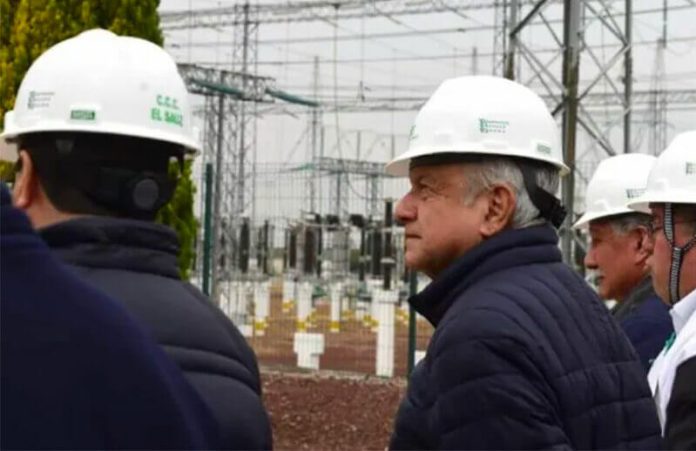President López Obrador has unveiled plans to change the constitution to strengthen the state’s grip on the country’s energy market by eliminating independent regulators and nationalizing future lithium exploration.
The constitutional bill sent to Congress on Friday would guarantee 54% of the power market to state electricity company CFE — compared with 38% that the company says it holds currently — and would get rid of the independent National Hydrocarbons Commission (CNH) and the Energy Regulatory Commission (CRE).
The proposal is a sign that Mexico’s nationalist leader is redoubling efforts to strengthen state energy companies, keep natural resources in government hands and reverse a 2013 opening of the market to private investment.
The bill is more radical than legislation passed by Congress this year, which has faced multiple legal challenges and was suspended by courts. Friday’s announcement instead would change the constitution directly and potentially blunt future legal challenges.
Energy analysts said the bill, if passed, would hamper more investment in the sector and increase reliance on dirtier power produced by CFE plants.
“The initiative, if passed, will destroy the electricity market and with it Mexico’s potential economic development,” said Montserrat Ramiro, a global fellow at the U.S.-based think tank Wilson Center and a former regulator. “This will hurt Mexicans, let alone industrial consumers and power industry participants.”
In order to pass, the reform will need backing from opposition parties to reach the two-thirds majority needed in both houses of Congress. Experts are focused on what the Institutional Revolutionary Party (PRI), which spearheaded the 2013 liberalization, will do.
“There’s no way any member of the opposition can support that without branding themselves anti-business,” said Pablo Zárate, managing director at FTI Consulting.
In the bill the government also proposed that only the state can produce lithium, a key component in batteries for electric vehicles. “All the lithium that there is in the subsoil of the motherland is owned by Mexicans,” López Obrador said in his morning news conference.
Existing concessions for lithium exploration that had been started would be respected, the government said, however.
Investors are betting that the rise of electric cars will drive a period of rapid growth for lithium miners and battery producers. More research is needed into Mexico’s lithium deposits and whether its extraction would be profitable at current prices, experts say.
© 2021 The Financial Times Ltd. All rights reserved. Please do not copy and paste FT articles and redistribute by email or post to the web.
